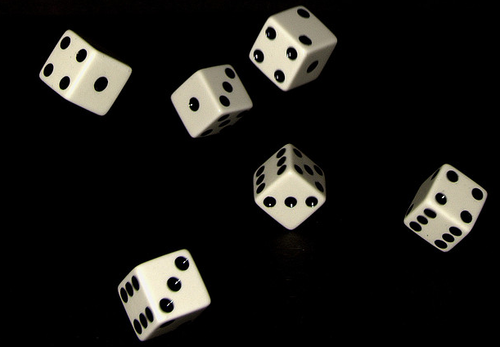Roll the dice thrice 2
 A fair dice is numbered with 1, -2, 0, -1, 3, 2 on its faces.
A fair dice is numbered with 1, -2, 0, -1, 3, 2 on its faces.
Let the probability of getting a sum of 5 after rolling the dice thrice can be expressed as where are relatively coprime positive integers.
Find .
Try these too: Part I , Part III .
Image Credit: Flickr Gard Rimestad .
The answer is 77.
This section requires Javascript.
You are seeing this because something didn't load right. We suggest you, (a) try
refreshing the page, (b) enabling javascript if it is disabled on your browser and,
finally, (c)
loading the
non-javascript version of this page
. We're sorry about the hassle.
Total number of cases = 6 3 = 2 1 6
Sum of 5 can be obtained in following cases
( 3 , 2 , 0 ) In this cases there are 3 ! = 6 ways
( 3 , 3 , − 1 ) which can be obtained in 2 ! 3 ! = 3 ways
( 2 , 2 , 1 ) in 2 ! 3 ! = 3 ways
( 1 , 1 , 3 ) in 2 ! 3 ! = 3 ways
Total number of favourable cases= 6 + 3 + 3 + 3 = 1 5
Required probability = 2 1 6 1 5 = 7 2 5